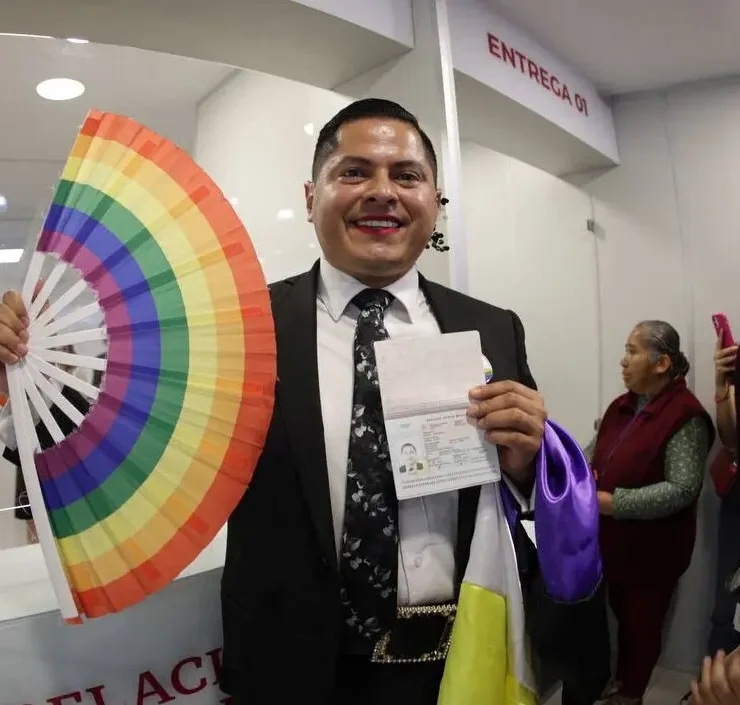Defying the Gender Binary in Juchitán de Zaragoza, Oaxaca

Juchitán de Zaragoza, Oaxaca, is a small community in southern Mexico that has been defying the gender binary for generations. Contrary to Western society and the belief that there are only two genders, male and female, the indigenous Zapotec people of Mexico recognize a third gender known as muxes. Exemplifying both male and female attributes, muxes are viewed as more of a social and gender category versus being perceived as a sexual classification. Felina Santiago states in the Oaxaca episode of Eva Longoria: Searching for Mexico, “We are people of two spirits; we are the duality, neither man nor woman. You are neither less nor more.”
A local legend states that the community of muxes originated in the hands of San Vicente Ferrer, the patron saint of Juchitán. It is said that he transported three bags containing seeds set to be dispersed throughout the world. The first bag had male seeds, the second had female seeds, and the third bag held a mixture of both. While passing through Juchitán de Zaragoza, the bag containing both seeds was severed and marked the beginning of the communities defiance towards the gender binary.
The acceptance of a third gender has been recognized in indigenous communities in Mexico all the way back to before Spanish colonization and the influence of Catholicism. Alongside various other communities that do not align with the gender binary such as Hijras in India, Bakla in the Philippines, and Fa’afafine in Samoa, Muxes are typically assigned as male at birth but lean towards a more feminine approach when it comes to their clothing, occupations, and behaviors.
A majority of muxes find romantic attraction towards male partners but do not label themselves as gay. Being a muxe isn’t viewed as an identity such as being a member of the LGBTQ+ community is, and is not equivalent to identifying as a transgender person. It is thought that this concept casts a Western perspective aloft the community failing to apprehend the niceties of being a muxe.
Prideful in their Zapotec heritage, muxes hold an important role in conserving culinary traditions and various other rituals. They are treated with deference and due to the Zapotec language being genderless, they are included in fluid and inclusive dialogue amongst the community with ease.
Unfortunately, muxes still experience discrimination and face challenges both inside and outside of the household when it comes to feeling accepted as an individual within society. Despite these obstacles, muxes are still highly valued members of Mexican culture that have maintained their rights and identities for generations despite the ideas of machismo and the patriarchy in general.
Founded in 1976, “La Vela de Las Auténticas Intrépidas Buscadoras del Peligro,” or “The Vigil of the Authentic, Intrepid Danger-Seekers” is a three-day festival put on by the muxe community each year featuring colorful floats, a catholic mass, dancing, and a catwalk where a queen will be crowned during the event. Dressing for the occasion, members of the community can be seen wearing anything from traditional blouses to glittery dresses and high heels. Originally seen as an act of independence the festival has advanced into a widely celebrated event shared amongst members of the community.
The communities endeavor for recognition advances as their identities are argued by society. However, “the muxes are a great example of how cultural diversity and nonconforming gender identities can coexist and thrive in different societies,” and should be used as an example for the inclusion of communities such as the LGBTQ community seeing how consistently they are under attack within the U.S.








